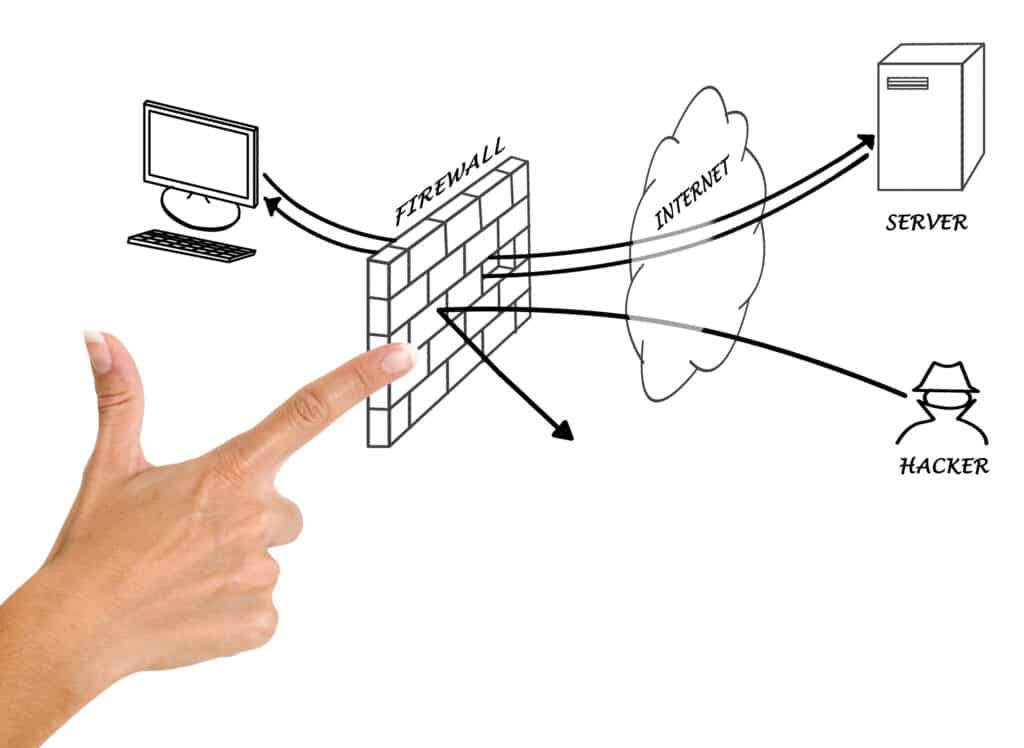by Chris Montgomery

In the ever-evolving landscape of cybersecurity, firewalls serve as the first line of defense against potential threats, safeguarding our digital assets. Both consumer and enterprise-grade firewalls aim to monitor and control incoming and outgoing network traffic based on predetermined security rules. However, the complexity, scalability, and features of these firewalls vary significantly to cater to different needs.
Consumer Grade Firewalls
A consumer-grade firewall is designed for home use or small businesses with minimal network complexity. They are often bundled with home routers or available as software applications. Their primary function is to provide basic protection against common threats, such as malware and unauthorized access attempts. A consumer firewall is generally easier to set up and manage, with user-friendly interfaces and minimal configuration options.
Key Features:
- Basic Packet Filtering: Monitors packets of data to block or allow based on the source and destination IP addresses, protocols, and ports.
- Pre-configured Settings: Comes with default settings optimized for general home use.
- Low Cost: More affordable, making them accessible for personal use or small businesses.
Enterprise Grade Firewalls
Enterprise-grade firewalls are designed for organizations with complex network environments. They offer advanced features and greater flexibility to protect against sophisticated cyber threats. This type of firewall is capable of handling higher volumes of traffic and provide more granular control over network traffic.
Key Features:
- Advanced Threat Protection: Includes features like intrusion prevention systems (IPS), deep packet inspection (DPI), and sandboxing to identify and block sophisticated attacks.
- High Scalability: Can handle large volumes of traffic and are designed to be scalable to accommodate the growth of a business.
- Customizable Policies: Allows for detailed rule configuration to control network traffic based on specific business needs.
- Detailed Reporting and Analytics: Offers comprehensive logs and reports for better insight into network activity and potential threats.
The Importance of Firewalls for Business Protection
Firewalls are crucial for protecting business networks and data from a variety of threats, including malware, ransomware, and unauthorized access. Here’s why having an enterprise-grade device is essential for any business:
- Data Security: Firewall that protects sensitive business data from being accessed or stolen by cybercriminals.
- Compliance: Many businesses are required to comply with data protection regulations. A firewall helps in meeting these compliance requirements by securing the network.
- Downtime Prevention: By blocking malicious traffic, these devices help prevent potential attacks that could lead to costly downtime.
- Secure Remote Access: Enterprise firewalls enable secure remote access for employees, ensuring that the network remains protected even with a remote workforce.
In summation, while both consumer and enterprise-grade firewalls aim to protect against cyber threats, the choice between them depends on the specific needs and complexity of the network they are protecting. For businesses, work with your managed service provider before making the decision to buy a consumer grade device. Investing in an enterprise-grade firewall is not just a matter of security but a necessity to safeguard their operations, data, and reputation in a digitally connected world.
#ThrottleNet #Firewall #cybersecurity



